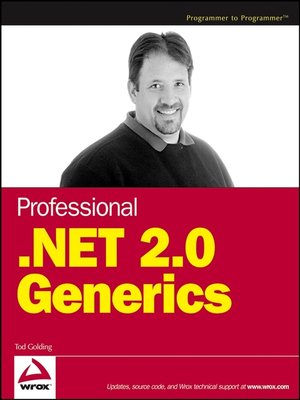
Sign up to save your library
With an OverDrive account, you can save your favorite libraries for at-a-glance information about availability. Find out more about OverDrive accounts.
Find this title in Libby, the library reading app by OverDrive.



Search for a digital library with this title
Title found at these libraries:
| Library Name | Distance |
|---|---|
| Loading... |
This book explores all aspects of the .NET generics implementation, covering everything from fundamental generic concepts, to the elements of generic syntax, to a broader view of how and when you might apply generics. It digs into the details associated with creating and consuming your own generic classes, structures, methods, delegates, and interfaces, examining all the nuances associated with leveraging each of these language constructs. The book also looks at guidelines for working with generic types, the performance gains achieved with generics, the new generic container libraries (BCL and third party), and key aspects of the underlying .NET implementation.
For those transitioning from C++, the book provides an in-depth look at the similarities and differences between templates and.NET generics. It also explores the syntactic variations associated with using generics with each of the .NET languages, including C#, Visual Basic, J#, and C++.







